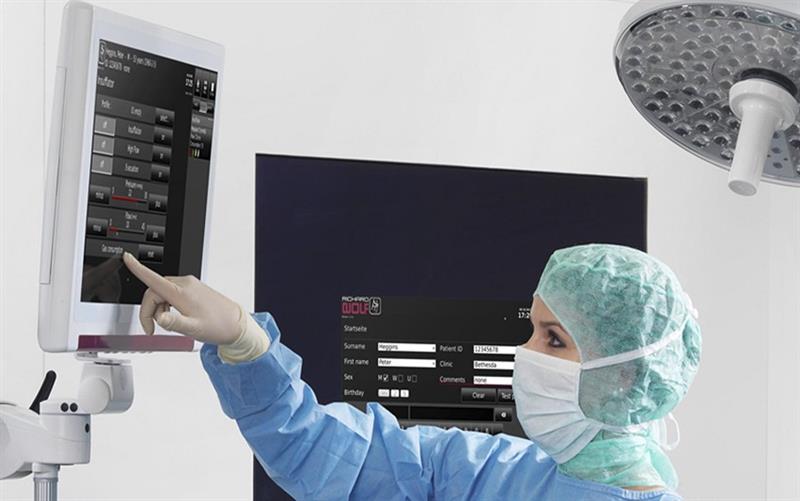
In an era where technology is reshaping industries at an unprecedented pace, the healthcare sector stands to benefit immensely from state-of-the-art software solutions. These innovative tools are not just enhancing the efficiency of healthcare delivery but are also transforming patient experiences, optimizing resource management, and enabling better decision-making.
state-of-the-art software solutions are revolutionizing healthcare by enhancing efficiency, improving patient care, and reducing costs. As technology continues to evolve, the healthcare industry must embrace these innovations to deliver better outcomes for patients and providers alike.
1. Electronic Health Records (EHRs)
Electronic Health Records (EHRs) are digital versions of patients’ paper charts. They provide real-time, patient-centered records that make information available instantly and securely to authorized users. EHRs streamline workflows by:
Reducing Paperwork: Automating data entry reduces the need for paper records, minimizing errors and saving time.
Enhancing Accessibility: Healthcare providers can access patient information from anywhere, improving coordination and decision-making.
Improving Patient Care: EHRs enable quick access to patient histories, lab results, and treatment plans, facilitating better care management.
2. Telemedicine
Telemedicine utilizes technology to deliver healthcare remotely, breaking down geographical barriers and improving access to medical services. Key benefits include:
Increased Accessibility: Patients in remote or underserved areas can receive medical consultations without traveling long distances.
Convenience: Telemedicine offers flexibility in scheduling appointments, reducing wait times and improving patient satisfaction.
Cost Efficiency: Reduces the need for physical infrastructure and associated costs.
3. Practice Management Software
Practice management software streamlines administrative tasks such as scheduling, billing, and reporting. Its advantages include:
Efficient Scheduling: Automates appointment bookings and reminders, reducing no-shows and optimizing clinic schedules.
Billing and Claims Management: Simplifies billing processes, ensures accurate coding, and expedites insurance claims.
Data Analytics: Provides insights into practice performance, helping healthcare providers make informed decisions.
4. Patient Portals
Patient portals are secure online platforms that allow patients to access their health information, communicate with providers, and manage their care. Benefits include:
Empowered Patients: Patients can view test results, track medications, and schedule appointments, leading to more active involvement in their care.
Improved Communication: Enhances communication between patients and healthcare providers, fostering better relationships and care coordination.
Health Education: Provides access to educational resources, promoting better health literacy and self-management.
5. Clinical Decision Support Systems (CDSS)
CDSS are intelligent systems that assist healthcare providers in making evidence-based clinical decisions. They offer:
Diagnostic Assistance: Analyze patient data to suggest possible diagnoses and treatment options.
Error Reduction: Alert providers to potential medication interactions or allergies, enhancing patient safety.
Guideline Adherence: Ensure that treatments align with the latest clinical guidelines and standards.
6. Artificial Intelligence (AI) and Machine Learning
AI and machine learning are revolutionizing healthcare by offering advanced data analysis and predictive capabilities. Their applications include:
Predictive Analytics: Identify at-risk patients and predict disease outbreaks, enabling proactive interventions.
Image Analysis: Improve accuracy in interpreting medical images, such as X-rays and MRIs, enhancing diagnostic precision.
Personalized Medicine: Analyze genetic and clinical data to tailor treatments to individual patients, improving outcomes.
7. Mobile Health (mHealth) Applications
mHealth applications leverage mobile devices to support health and wellness. They provide:
Remote Monitoring: Enable continuous monitoring of chronic conditions, alerting providers to potential issues.
Health Tracking: Allow users to track fitness, diet, and medication adherence, promoting healthier lifestyles.
Patient Engagement: Encourage patients to stay engaged with their health through reminders, educational content, and support.
8. Cybersecurity Solutions
With the increasing reliance on digital systems, safeguarding patient data is paramount. Advanced cybersecurity solutions offer:
Data Protection: Implement robust encryption and access controls to secure sensitive health information.
Threat Detection: Utilize AI to detect and respond to potential cyber threats in real-time.
Compliance: Ensure adherence to regulatory standards, such as HIPAA, protecting patient privacy and maintaining trust.